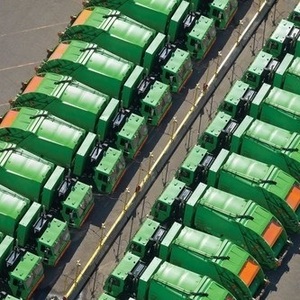Enbridge Gas, OWMA decarbonize waste collection trucks with RNG




SOURCE: CNW Group/Enbridge Gas Inc
April 13, 2022
BY Enbridge Gas Inc.
Advertisement
Advertisement
Related Stories
Par Pacific Holdings Inc. on Feb. 24 confirmed commissioning is underway on a biorefinery project under development at the company’s Kapolei refinery in Hawaii that will add 61 MMgy of capacity to produce renewable diesel, SAF and associated biofuels.
The American Biogas Council today announced the election of new officers. They join Bernard Sheff, P.E., from Burns and McDonnell, and Patrick Serfass, who continue as board chair and executive director, respectively.
Kanadevia Inova has announced the official groundbreaking of the Louisville Township Renewable Gas Project, a pioneering large-scale anaerobic digestion facility located in Louisville Township, Minnesota.
Calumet Inc. on Feb. 27 confirmed that the MaxSAF expansion at its Montana Renewables facility remains on track to be operational in the second quarter of 2026. The project will boost sustainable aviation fuel (SAF) capacity to 120-150 MMgy.
Eni has announced it will proceed with plans to convert certain units of the Sannazzaro de’ Burgondi refinery into a biorefinery that can produce 550,000 metric tons per year of feedstock, with the flexibility to produce SAF and renewable diesel.





